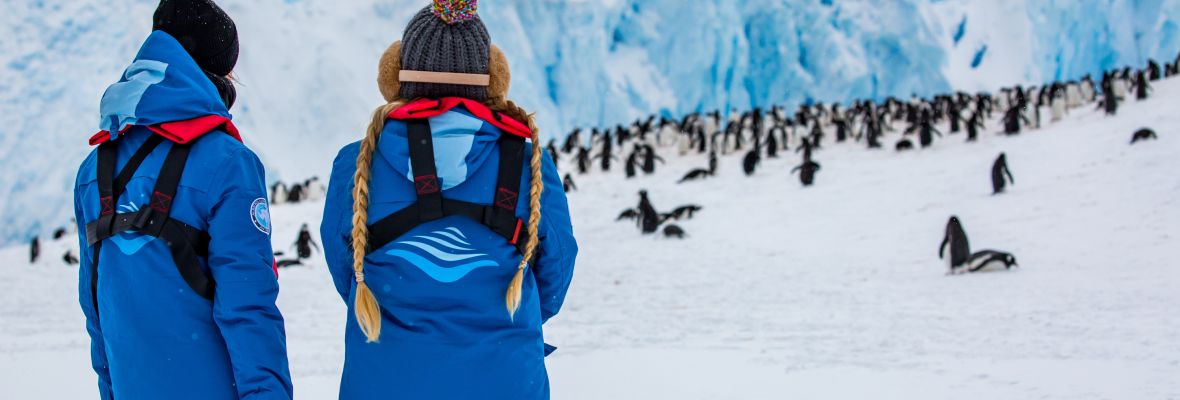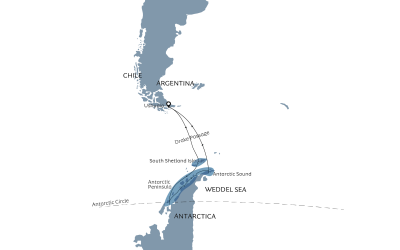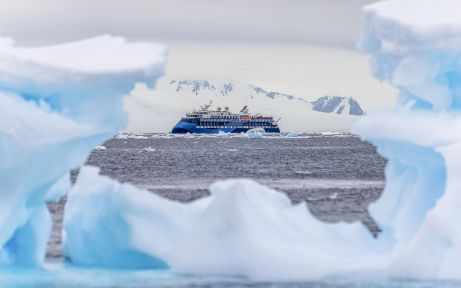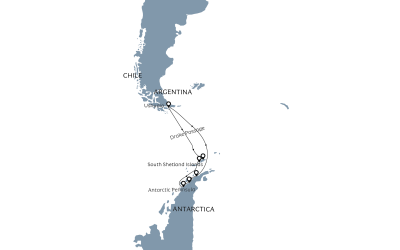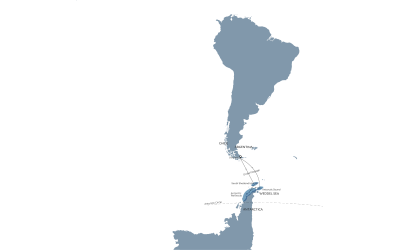Exciting changes are on the way!
As part of our merger with Polar Latitudes, we’re refreshing key elements of our website to reflect this new chapter. Discover more in our latest news update.
As an operating member of the International Association of Antarctic Tour Operators (IAATO), Albatros Expeditions is fully committed to adhering to all prescribed protocols for safe and responsible operations in Antarctica. This commitment extends to heightened vigilance and strict adherence to IAATO-mandated measures addressing the elevated risk of highly pathogenic avian influenza (HPAI), which poses a serious threat to the fragile ecosystems of Antarctica and South Georgia.
Since 2021, HPAI outbreaks have intensified globally, and on 25 February 2024, the first case of avian influenza was confirmed in the Antarctic region. Marine mammals, including seals and sea lions, have also been impacted by this virus.
In response, Albatros Expeditions, along with all IAATO members, follows rigorous procedures to help protect the region's unique wildlife.
Here is how you can contribute to preventing the virus and other pathogens being introduced and spread:
Before you go
Before you leave home ensure anything that may come into contact with the Antarctic environment – including clothing and equipment – is thoroughly cleaned and disinfected.
Refer to IAATO’s Don’t Pack a Pest guide to assist you.
In Antarctica:
Existing protocols, including daily biosecurity procedures and maintaining minimum distances from wildlife, are an essential part of protecting Antarctica. These will be presented to you during mandatory briefings onboard as well.
In addition, it is required that you:
- Do not sit, kneel, crouch, or lay down in wildlife areas.
- Do not place any equipment on the ground or snow during on shore excursions.
If you are ever uncertain, consult your guides for direction.
While some landing sites may be affected by avian flu restrictions, our expert guides are committed to providing a memorable experience to our guests. When restrictions are in place, we will strive to offer alternative site options, ensuring that all operations remain safe for our guests, staff, and the environment.
We actively track the developments of HPAI in Antarctica and South Georgia, maintaining close communication with key organizations such as IAATO and the Government of South Georgia & the South Sandwich Islands (GSGSSI).
Find out more about Avian Influenza from the World Organisation for Animal Health.
FAQs:
- What is Avian Flu?
- Avian influenza is a disease that spreads naturally among wild aquatic birds as well as infecting other species of birds. Occasionally, it can infect humans, although it is rare.
- What is the risk to humans?
- The World Organisation for Animal Health estimates that human infections are low. Infections in humans have been observed in those who work close to birds for an extended period of time.
- How are you notifying and educating passengers before boarding and aboard about Avian Flu?
- We have shared the IAATO guidelines for visitors to Antarctica ahead of departure to help mitigate the introduction and spread of the virus. Before you leave home, please ensure that anything that may come into contact with the Antarctic environment is thoroughly cleaned and disinfected. Please use IAATO’s Don’t Pack a Pest guide to assist you. While in Antarctica, please follow existing protocols including daily biosecurity procedures and maintain minimum distances from wildlife. In addition, follow the guidelines stated in this page. Albatros Expeditions' Team will be reminding all passengers on the protocols for Avian Flu.
- May I cancel my booking due to concerns over Avian Flu?
- You can cancel your booking in compliance with our standard Terms and Conditions.



